The City of Delta has over $4 billion in assets and infrastructure.
BUDGET BASICS
WHAT IS A FINANCIAL PLAN?
Each year, the City goes through a process to determine how much it will need to spend on an annual basis to:
Maintain current levels of service
Incorporate service level enhancements or reductions
Incorporate new operating initiatives
Fund capital projects
This information is contained in the 2026 Financial Plan and 2026-2030 Capital Plan and guides the work of staff and decisions of Council for the year.
PARTS OF THE FINANCIAL PLAN
Metro Vancouver
• Drinking Water
• Regional Planning
• Affordable Housing
• Liquid Waste Treatment
• Solid Waste Management
• Air Quality Regulation
• Regional Parks
• Regional Growth Strategy Government of Canada
Provincial Parks
Transportation
Health Care
• National Defence
• Trade and Commerce
• Federal Taxation
• Indigenous Lands and Rights
• Citizenship and Immigration
• Foreign Affairs
• Criminal Law
• Currency
A LOOK BACK AT 2025


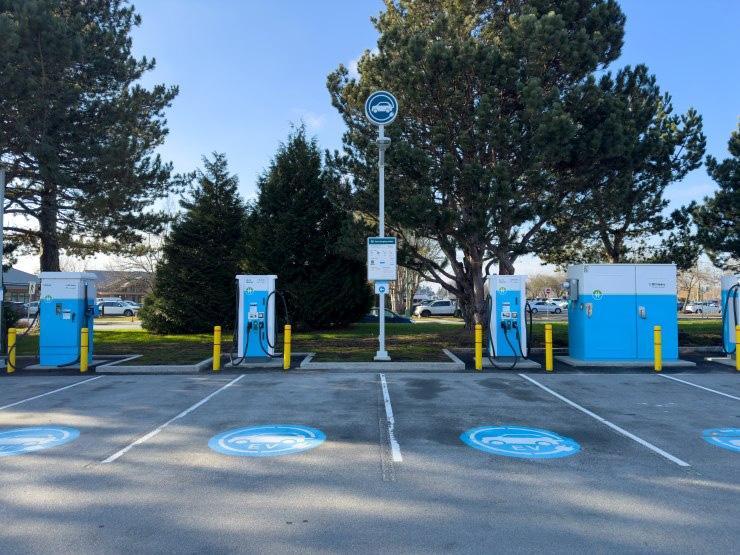
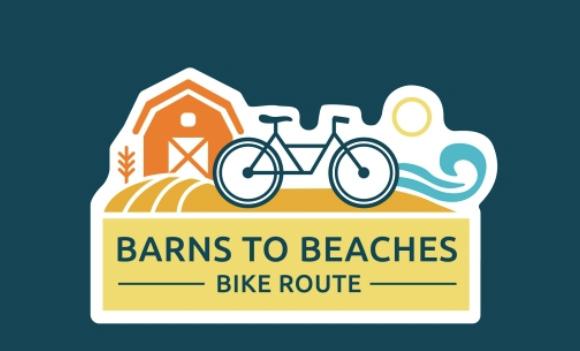
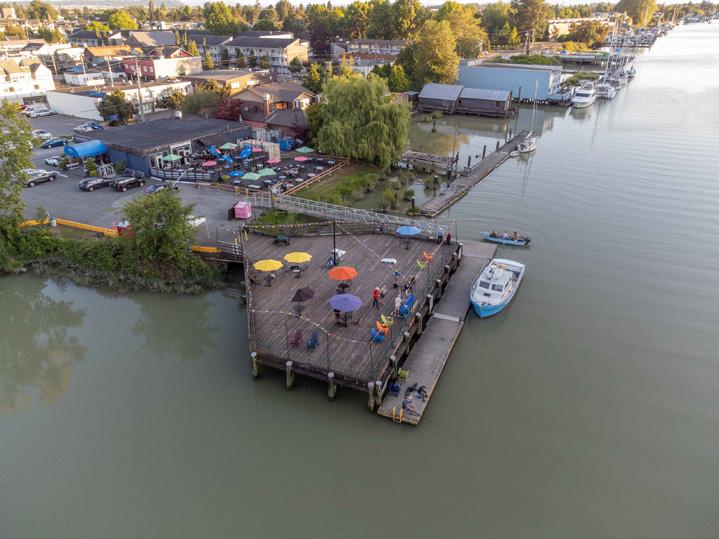

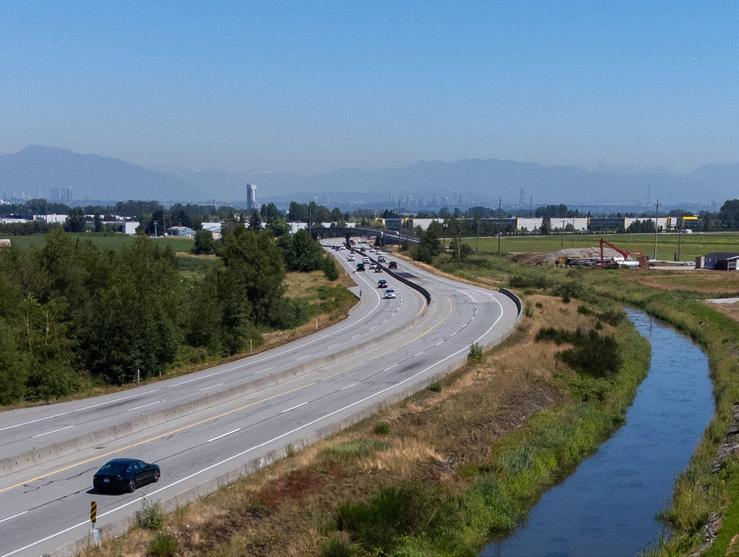
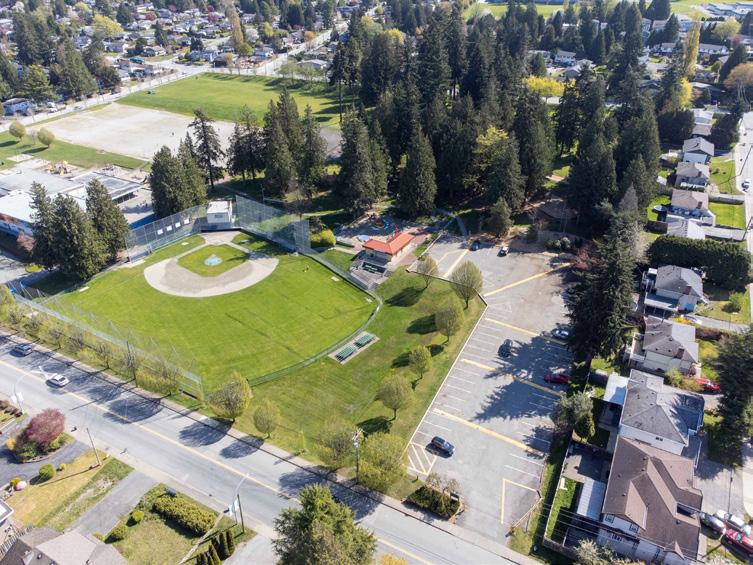
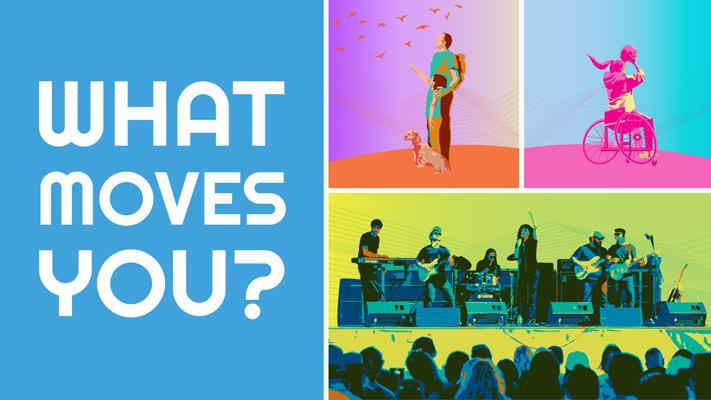
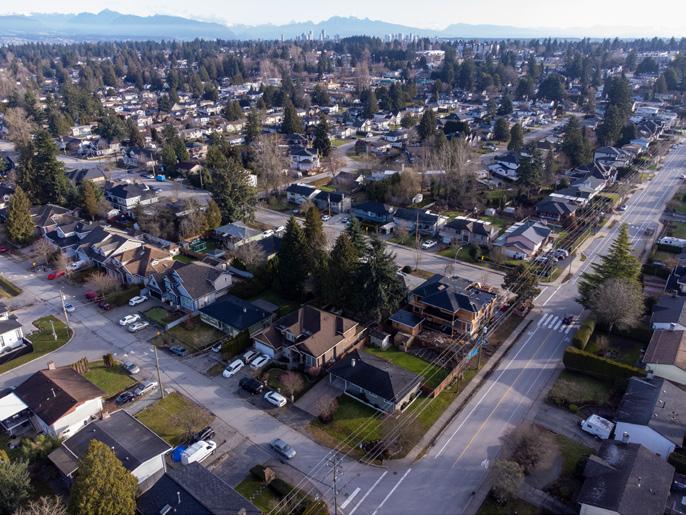
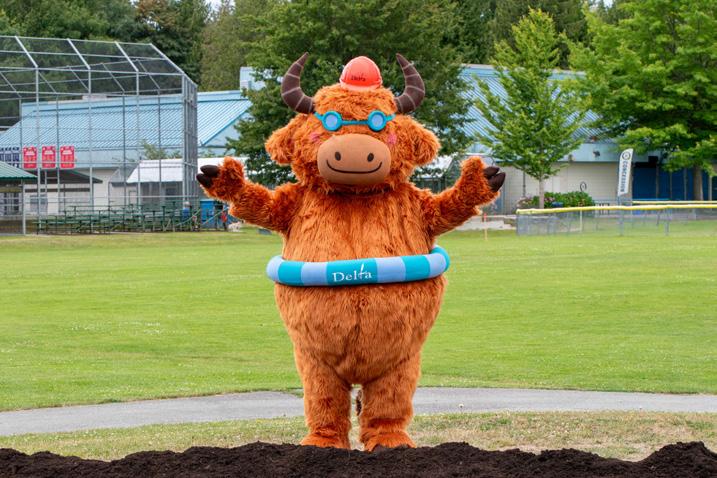
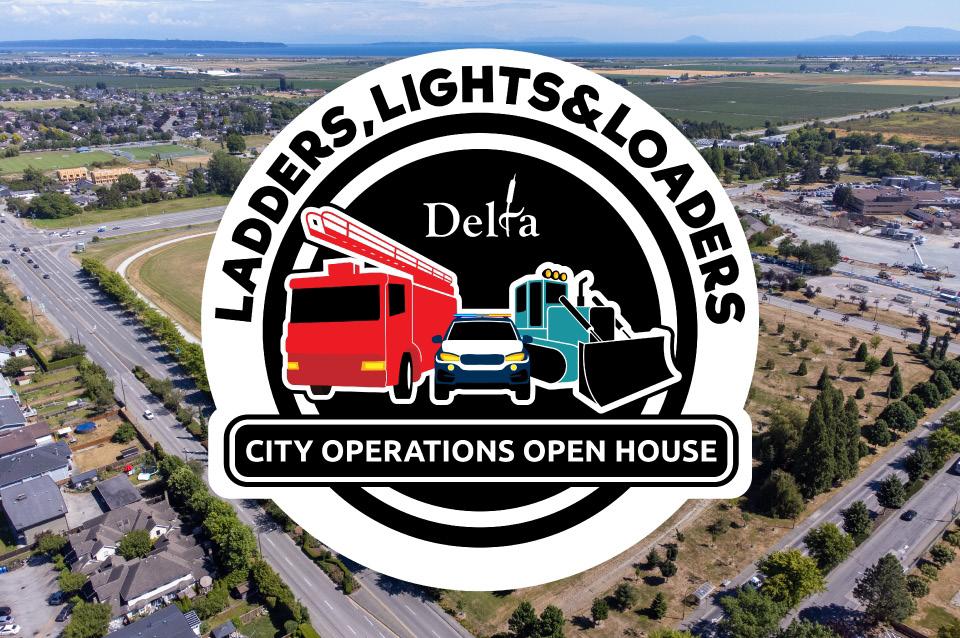
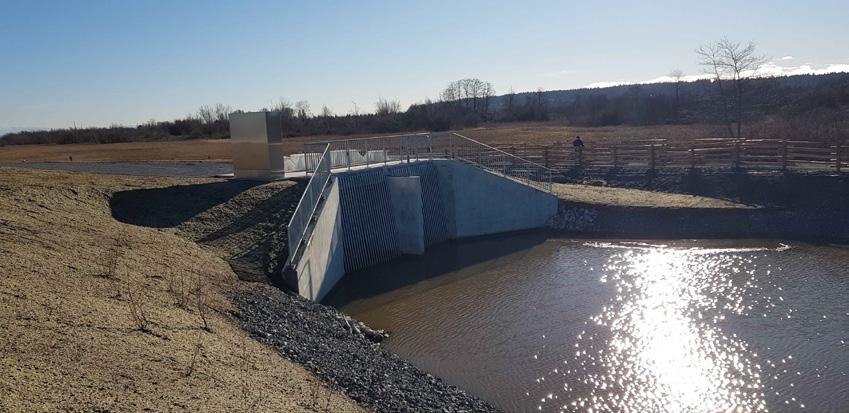



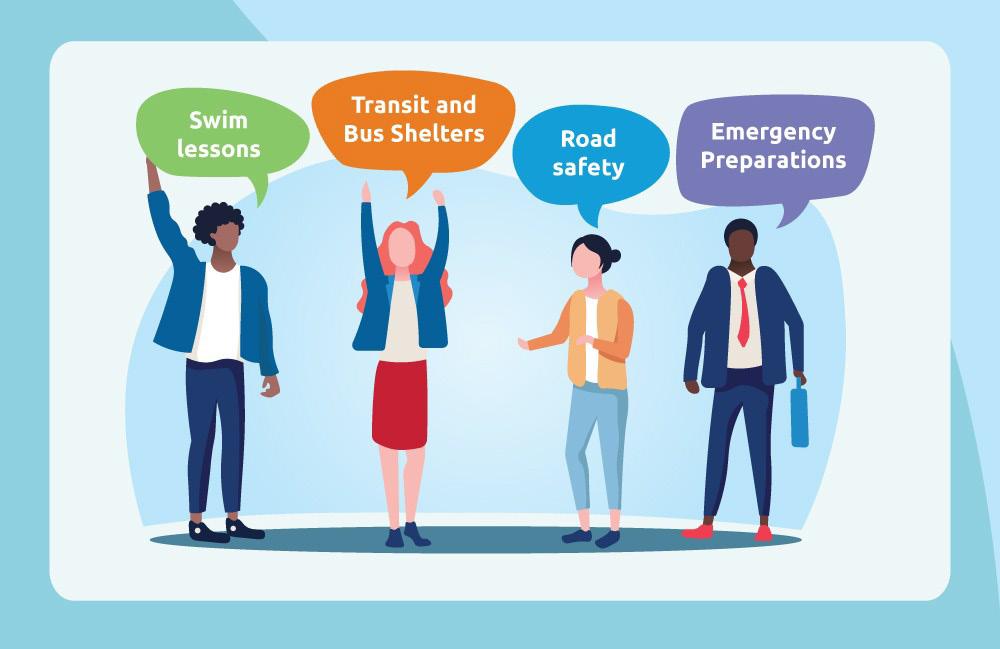
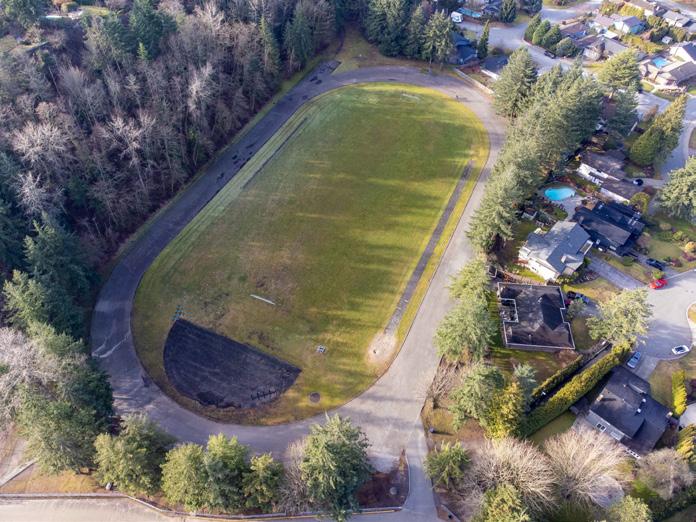
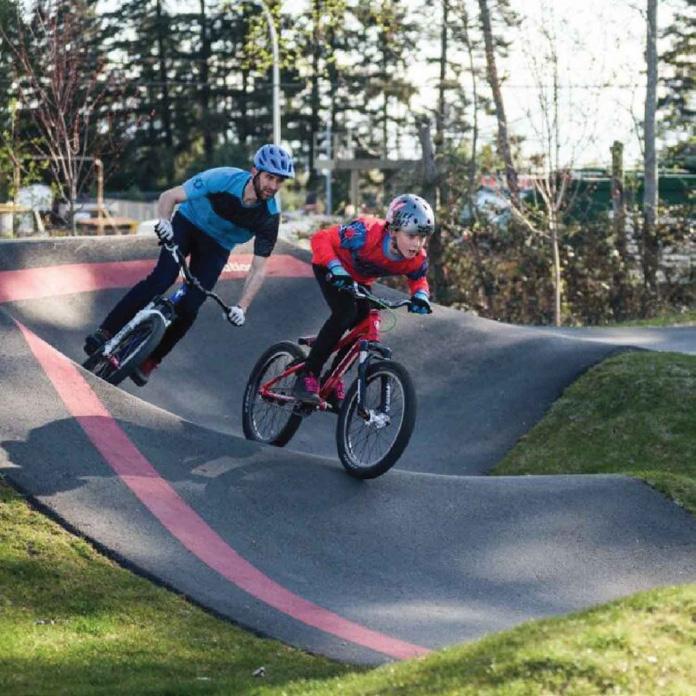

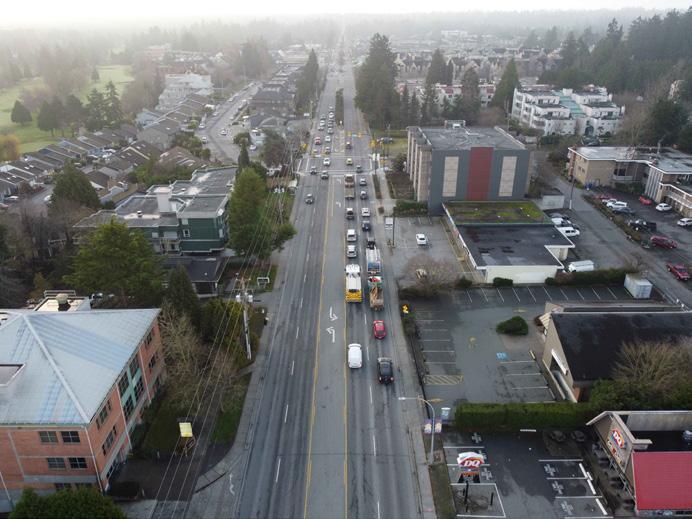

WHAT WE HEARD
Between February 13 and March 16, 2025, residents were invited to complete the 2025 Community Satisfaction Survey. The City of Delta heard from 2,082 residents on priorities and services that helped inform the Financial Plan and Capital Project Plan.
2025 COMMUNITY SATISFACTION SURVEY
Earlier this year, we asked Delta residents to share their thoughts in a city-wide survey. Here are a few highlights.
2,082 RESPONSES
A Margin of Error of +/-2% means it is an accurate representation of community views.
See the results:
RESPONDENT
Results are weighted meaning they are in proportion to community demographics.
76% are satisfied or very satisfied with their lives in Delta.
55% have a strong or very strong “feeling of belonging.”
69% would recommend their friends and co-workers to move here.
EMERGING PRIORITIES
1 Roads and Traffic
2 Growth and Density
66% agree or strongly agree the City is “doing a good job.”
82% believe they get fair to very good value for taxes.
67% want to maintain current service levels with moderate tax increase for inflation.
WHAT WE DID
3 Recreation Facilities and Events
This year's investments reflect what we heard from residents and demonstrate our commitment to building a stronger, more resilient city. Examples include:
• Traffic control signals and devices
• New sports field lighting
• Annieville Park renewal
• New community events
• Road rehabilitation and improvements
• Winskill Aquatic & Fitness Centre construction
• Continued playground renewal
• Synthetic turf replacement
• Equipment for protective services
• Tilbury Ice mechanical upgrades
• Dennison Park pickleball court expansion design
2026 BUDGET PROCESS
Review 2025 Community Satisfaction Survey results
October –November 2025
Community feedback
2025 July 2025
Financial Plan guidelines set
2025
Introduce draft budget to Council
–December 2025
Council to review draft budget
Annual Tax Rate Bylaw readings and adoption February –March 2025
Preliminary budget submissions from departments
July –September 2025
Review of department submissions
May 2026
Utility Rates and 5-year Financial Plan Bylaw readings and adoption
HOW DO I PARTICIPATE
• October 7 – Read the details of the draft 2026 Budget on letstalk.delta.ca/2026-Budget.
• October 7 – Complete a form on the website to share your feedback before October 30.
• October 29 – Drop by Open House #1 at the North Delta Recreation Centre Gymnasium between 4:30 and 6:30 pm.
• October 29 – Attend the Council Budget Workshop #1 at the North Delta Centre for the Arts beginning at 7:00 pm or watch online at delta.ca
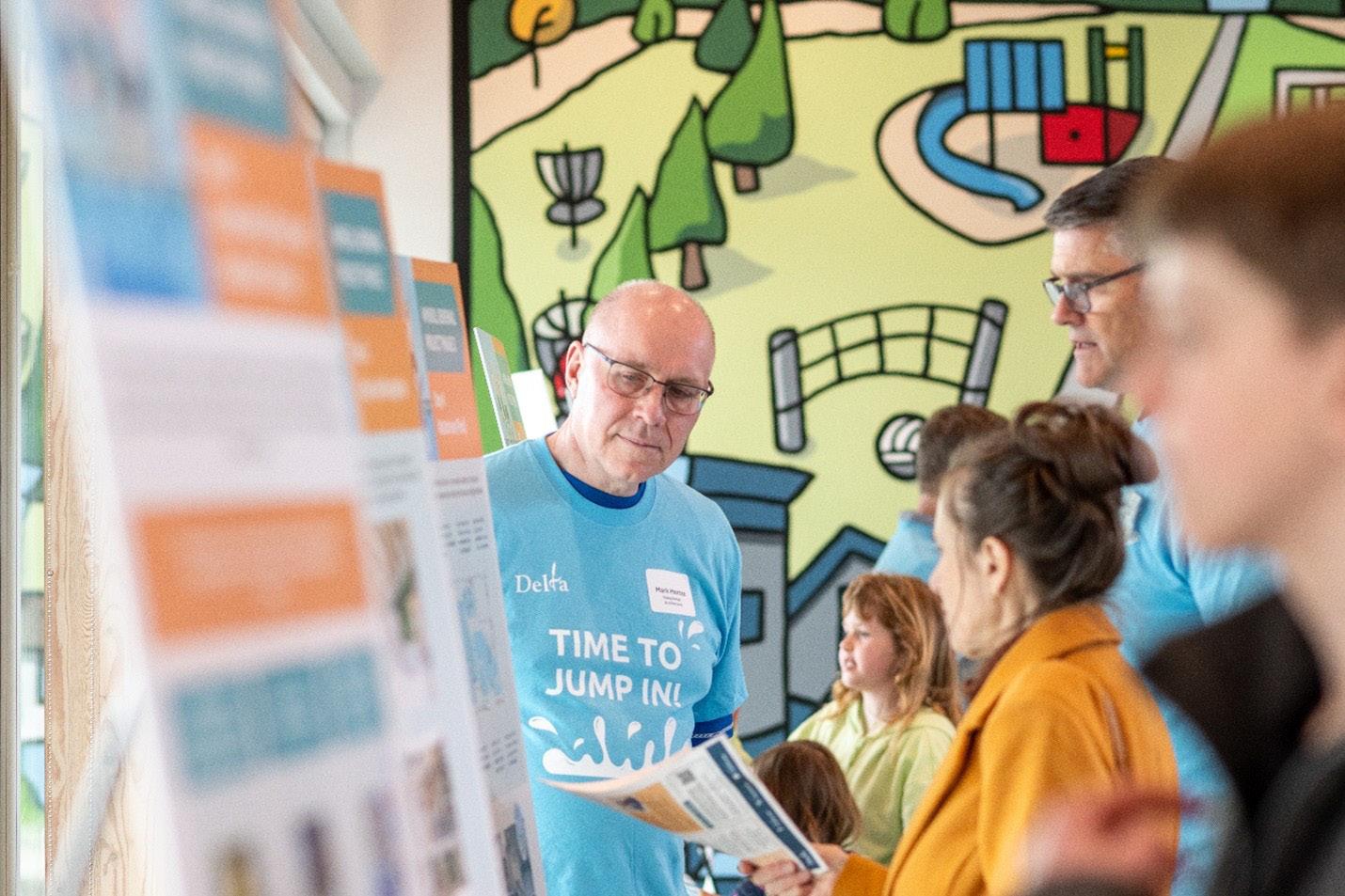
• October 30 – Drop by Open House #2 at City Hall in the foyer between 4:30 and 6:30 pm.
• October 30 – Attend the Council Budget Workshop #2 at City Hall in the Council Chambers beginning at 7:00 pm or watch online at delta.ca. October –November 2025
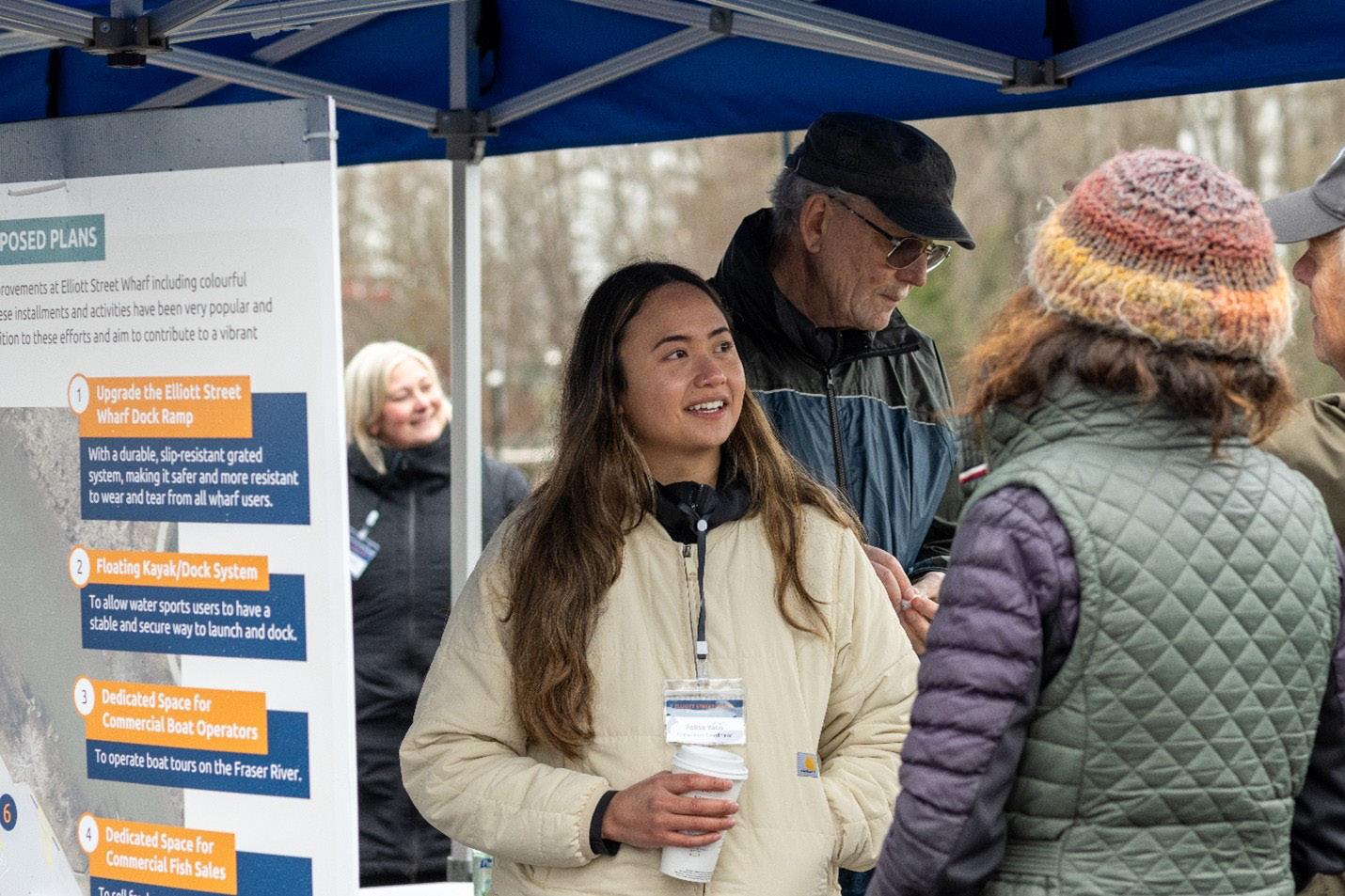
2026 BUDGET-AT-A-GLANCE
PROPOSED 2026 INCREASE
A CLOSER LOOK AT 2026 GENERAL OPERATING
Operating budget is the annual budget that funds services and programs for residents and businesses. The operating budget is based on what it will cost to provide City operational services and programs at service levels set by Council.
2026 GENERAL OPERATING EXPENSES ($268.1M)
• Funding to accommodate growing demand for recreation services
• Enhancements to community events and placemaking
• Ongoing funding for new housing, community support and public engagement
• Proactive asset management planning
• Supports public safety – Police and Fire departments
*Includes Police $60.8M and Fire & Emergency Services $42.1M.
**Includes Corporate Administration, Corporate Services, Finance, Property Use and Compliance, and other general services.
About
2026 GENERAL OPERATING REVENUES ($268.1M)
***Includes casino revenue and transfers from reserves. Highlights
• Additional fee and permit revenue
• New lease agreements and increases to existing agreements
• Increases for payments in lieu of property taxes
A CLOSER LOOK AT 2026 UTILITIES
The City operates three utilities - water, sewer, and solid waste, which includes garbage and recycling. The City collects utility fees to ensure the delivery of current services and funding for sustainable infrastructure management. Flat rate utility is charged once a year and those that have a water meter pay water and sewer fees quarterly based on consumption. 2026 utilities operating costs total $71.2M and are funded from utility rates and other revenues. Utilities infrastructure projects are included in the Capital Plan.
UTILITY OPERATIONS ($71.2M)
WATER AND SEWER
Utility fees fund annual operations, maintenance, long term infrastructure replacement, Metro Vancouver water supply and sewer treatment. Water and sewer utility fees are invested to help ensure utility infrastructure is in good working order through programs such as watermain replacement, water conservation program initiatives, sanitary sewer upgrades, and sewer inflow/infiltration program.
• Metro Vancouver (MV) water purchases are projected to increase by 6%.
• MV Fraser Sewerage Area Levy is projected to increase 4%.
• City operating costs increases include capital infrastructure maintenance and operations.
WASTE
Solid waste utility fees provide for the collection and disposal of garbage and green waste, and also the collection of recyclable materials, including Delta’s Spring Clean-Up and Large Item Pick-Up programs.
• Revenue from RecycleBC has offset contractual increases for curbside collection and operational service costs.
METRO VANCOUVER INCREASES
Over 65% of your water bill is used to purchase water from Metro Vancouver and 61% of your sewer bill is used to fund shared infrastructure provided by Metro Vancouver.
Each year, Metro Vancouver costs are passed on to consumers by the City to fund their portion of the utility services.
A CLOSER LOOK AT 2026 CAPITAL PROJECTS
The capital budget is used to maintain, improve, and build new infrastructure. The capital program includes funding for civic buildings, roads, water, sewer, drainage, parks, equipment, and other items. The following factors are considered in developing the capital plan including the age and condition of existing City assets, risk assessments, coordination of other capital projects, and future needs of the community.
CAPITAL INVESTMENT BY CATEGORY $124.5M (NEW PROJECTS)
Highlights
Major Multi-Year Projects:
• Winskill Aquatic & Fitness Centre
• Annieville Park renewal
• Ladner Village revitalization
• Cromie Park improvements
Key Projects:
• Road improvements and traffic management
• Transit infrastructure –bus shelters, benches, and accessibility
• Tilbury and Annacis Island industrial areas –paving, cycling, sidewalks and transit
• Mackie Park and Hawthorne Park fieldhouses
• Tilbury Ice renewal
• Dennison Park pickleball court expansion (design in 2026)
• 84 Street pump station
2026 BUDGET AND YOU
2025 COMPARING DELTA
Year over year, Delta tax increases are consistently below comparable cities. In 2025, Delta taxes and user fees are among the lowest in the Lower Mainland. A typical house in Delta paid $4,900 annually compared to a regional median of $5,600.
COMPARISONS
Business Tax to Residential Tax Ratio
Delta property tax increases have been conservative. Over 20 years, property tax increases have been less than comparable cites by approximately 16%. In 2025, Delta had the lowest business tax to residential tax ratio among comparable communities in the Lower Mainland.
A LOOK AHEAD AT 2026
In line with the City’s Goals and Priorities for this term, here is a sample of the operating improvements and new capital projects that are proposed to advance in 2026.
Road Paving
Industrial Area Transit and Other Improvements
Annieville Park Renewal
Tilbury Ice Mechanical Upgrades
Mackie Park Fieldhouse Replacement
Ladner Bike Park Renewal 2026 Election Preparation
Chisholm St. Wharf Upgrades
Cromie Park Ball Diamond Agricultural Infrastructure
Ladner Harbour Park Playground Renewal
Winskill Aquatic & Fitness Centre Rebuild
Dennison Pickleball Expansion Design
Sunshine Hills Playground Renewal
CITY OF DELTA GOALS & PRIORITIES
BUILD HOUSING & GROW SUSTAINABLY
• Increase building permits for net new housing units to meet Delta's Provincial housing target.
• Align infrastructure upgrades and plans with new housing growth areas.
• Provide diverse housing options to ensure housing for everyone in Delta.
ENHANCE RECREATIONAL FACILITIES
• Modernize and upgrade outdoor and indoor facilities to offer world-class recreational opportunities:
• Rebuild Winskill Aquatic Centre
• Advance the Cromie Park Master Plan
• Invest in updated track and fields at Mackie Park, Seaquam Secondary School, Delta Secondary School, and South Delta Secondary School
• Explore a cover for the North Delta Recreation Centre outdoor pool
• Prepare a Master Plan for John Oliver Park
LEAD RESPONSIBLY
• Invest sustainably in the maintenance of City infrastructure and facilities.
• Reduce unnecessary regulations and processes to make City operations more efficient and effective.
BUILD AN INCLUSIVE & SAFE COMMUNITY
• Continue to strengthen our connections with Tsawwassen First Nation and Musqueam Indian Band through meaningful collaboration.
• Develop initiatives to further support diversity, equity, and inclusion.
• Continue to build upon Delta’s world-class public safety services, such as police and fire.
CREATE A MORE VIBRANT COMMUNITY
• Improve active transportation options.
• Implement Delta’s Vision Zero Strategy by expanding the safe neighbourhood road and sidewalk improvement programs.
• Develop initiatives to enliven our city, like pop-up parks, concerts, and community events as well as pursuing the revitalization of Ladner Village.
